When Do German Shepherds Stop Growing? A Guide For Dog Owners

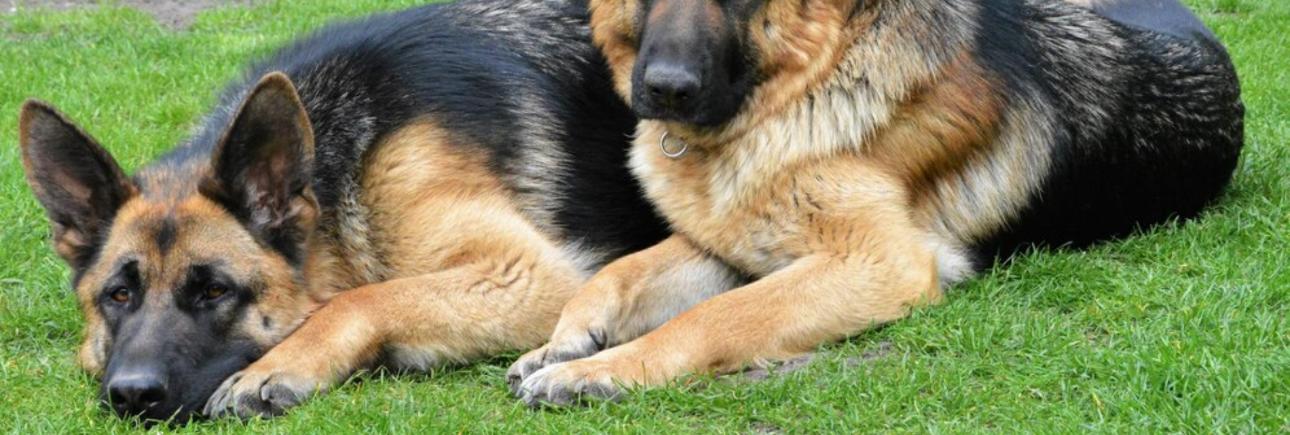
Did you just bring a German Shepherd puppy home, and now you are wondering when do German Shepherds stop growing and turn into majestic wolf-like dogs that you see in pictures? Well, this is a very common question for most new German shepherd owners. German Shepherds are a large breed, and their growth can seem never-ending at times!
This guide will delve into the typical growth timeline for German Shepherds, exploring factors that can influence their development and offering tips for supporting your pup’s healthy growth throughout their journey. So read on:
German Shepherd Growth Phase
German Shepherds are one of the most popular dog breeds around the world. Known for their intelligence, loyalty, and versatility, they make great companions and working dogs. If you’re a proud owner of a German Shepherd pup, you may be wondering when your furry friend will stop growing. In this section, we’ll dive deep into the growth phases of German Shepherds. Like all dogs, German Shepherds go through different growth phases as they mature. It’s important to understand these phases to ensure your pup grows up healthy and strong.
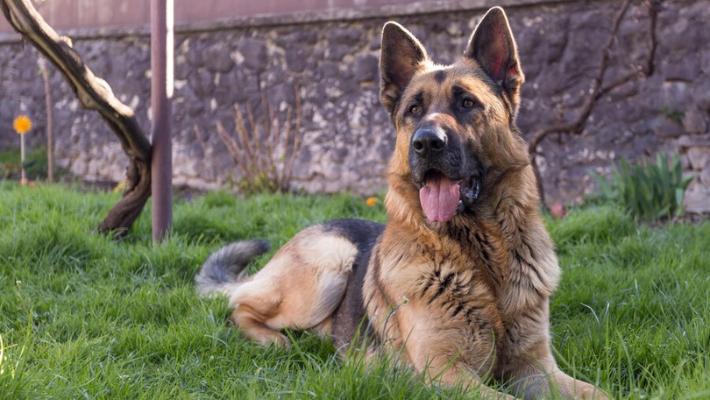
Neonatal Stage (Birth To 2 Weeks)
During the neonatal stage, newborn puppies are completely dependent on their mother for milk and warmth. Their eyes and ears are closed, and they can’t see or hear. During this time, the puppies focus on sleeping, nursing, and developing their senses.
Transitional Stage (2 To 4 Weeks)
This is a period of rapid development. Puppies open their eyes and ears, begin to wobble on their feet and start playing with their littermates. They will also start teething.
The second phase is the transitional phase, which occurs between two to four weeks of age. Here, the puppies start to open their eyes, hear, and explore their surroundings. They also begin to transition from solely relying on their mother’s milk to eating solid food.
Socialization Stage (4 To 12 Weeks)
This crucial stage is when puppies learn how to interact with the world around them. They should be socialized with other dogs, people, and different environments during this time. By 8 weeks, they are ready to go to their forever homes.
The third phase, known as the socialization phase, starts around four weeks and lasts until around 12 weeks of age. This is a crucial period for German Shepherds, as they develop important social skills and learn to interact with other dogs and humans. It’s also an ideal time to start training and exposing them to different environments.
Juvenile Stage (4 To 6 Months)
Puppies in this stage are full of energy and love to explore. They will continue to grow rapidly and learn new things. This is a great time to start obedience training.
Adolescent Stage (6 Months To 2 Years)
Adolescence is a challenging but rewarding time for both dog and owner. German Shepherds in this stage will test their boundaries and may become stubborn. Consistent training and patience are essential during this time. Males typically reach their full size around 18-24 months, while females can take up to 2 years to fully mature.
Adult Stage (2 To 8 Years)
Adult German Shepherds are calm, confident, and eager to please. They will still enjoy exercise and mental stimulation, but their energy levels will decrease somewhat.
When Do German Shepherds Generally Stop Growing?
On average, German Shepherds reach their full height between 18 to 24 months old. However, it’s important to remember that they may continue to fill out and develop muscle mass until they are around three years old. During this time, their bodies will mature, and they will reach their adult weight and overall physical appearance.

Some German Shepherds may stop growing earlier, around 12 to 16 months, while others may continue to grow until they are two years old. During this growth period, it’s essential to provide your pup with a balanced diet, regular exercise, and proper veterinary care to support their development.
At the same time, you should note that every dog is unique, and growth rates can vary based on a variety of factors. These are as follows:
Factors That Influence the Growth Rate of German Shepherds
Several factors can influence the growth rate of German Shepherds. Genetics plays a significant role, as certain bloodlines may have different growth patterns. Nutrition is another crucial factor.
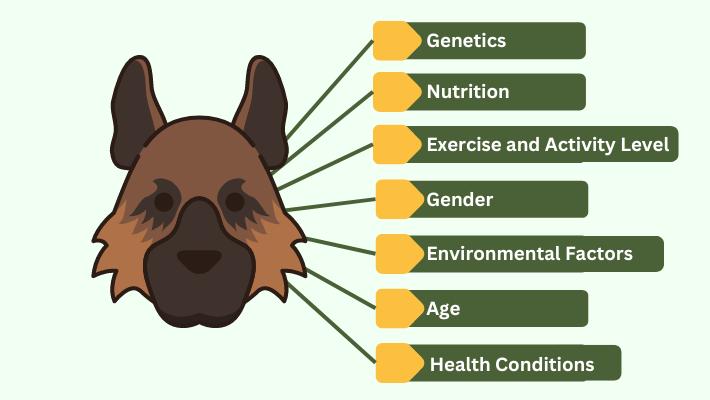
Feeding your pup a high-quality, age-appropriate diet with the right balance of protein, fat, and carbohydrates is vital for their growth and overall health. Environmental factors, such as exercise, stress levels, and living conditions, can also impact your German Shepherd’s growth rate. We have explained these factors in detail below:
Genetics
The genetic makeup of a German Shepherd, including their parentage and lineage, plays a significant role in determining their potential size and growth rate. Some lines tend to produce larger or smaller individuals.
Nutrition
Proper nutrition, with a balanced diet rich in high-quality proteins, carbohydrates, fats, vitamins, and minerals, is essential for supporting a German Shepherd’s optimal growth and development. Underfeeding or an imbalanced diet can lead to stunted growth.
Exercise And Activity Level
German Shepherds are active, high-energy dogs that require regular exercise and physical activity. Sufficient exercise helps promote healthy muscle development and bone growth, supporting their overall size and growth rate.
Gender
Male German Shepherds tend to be larger and grow at a faster rate compared to their female counterparts, generally reaching their full size earlier. Female German Shepherds generally reach their full height and stop growing between 16 to 20 months of age. However, keep in mind that individual differences can occur, and some females may continue to grow until they are two years old. It’s important to monitor their growth closely and adjust their diet and exercise accordingly to ensure they develop into healthy adult dogs.
Male German Shepherds tend to take a bit longer to reach their full size compared to females. They typically stop growing and reach their full height between 18 to 24 months of age. Again, it’s crucial to remember that these are average timelines, and individual dogs may deviate from them. Regular visits to the veterinarian can help track your male German Shepherd’s growth progress and ensure they are on the right track.
Age
German Shepherd puppies undergo rapid growth during the first year of life, with the majority of their growth occurring in the first 6-12 months. After this initial growth spurt, the growth rate slows down significantly.
Health Conditions
Certain health issues, such as hormonal imbalances, metabolic disorders, or skeletal problems, can negatively impact a German Shepherd’s growth and development, leading to slower or stunted growth.
Environmental Factors
Elements like climate, living conditions, and access to proper veterinary care can also influence the growth rate of a German Shepherd. Optimal environmental conditions support healthy growth.
Differences In Growth Patterns Between Working Line And Show Line German Shepherds
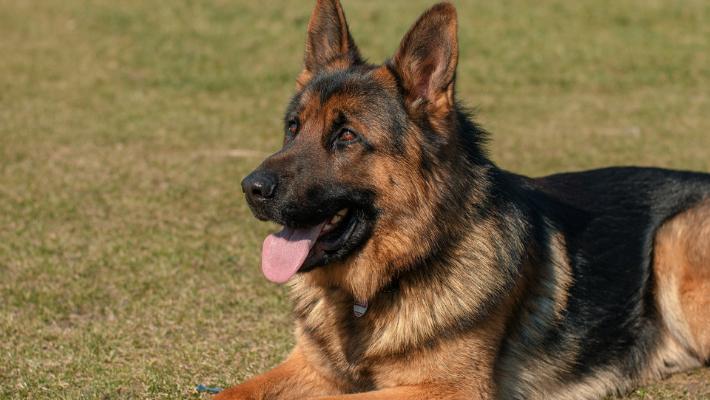
German Shepherds can be classified into two main lines: working line and show line. Working line German Shepherds are bred for their working abilities, such as herding or police work, while show line German Shepherds are bred for their appearance and conform to breed standards. These two lines may have different growth patterns.
Working line German Shepherds tend to have a more athletic build and may reach their full size earlier than show line German Shepherds. They often stop growing in height between 12 to 16 months old. On the other hand, show line German Shepherds may continue to grow until they are two years old or even slightly longer.
It’s important to note that these are general tendencies, and individual dogs within each line can have variations in growth patterns. If you have any concerns about your German Shepherd’s growth, consult with a reputable breeder or veterinarian for guidance.
Health Issues That Can Impact A German Shepherd’s Growth And Development
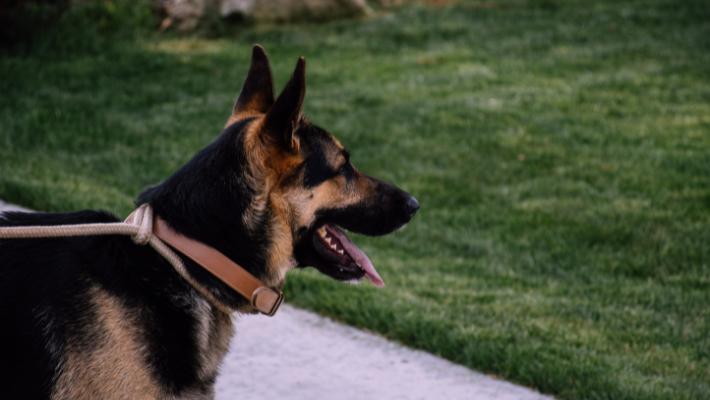
Several health issues can impact a German Shepherd’s growth and development. Here are some of the most common ones:
- Calcium deficiency: Calcium is essential for strong bones and teeth. A deficiency can lead to stunted growth, weak bones, and joint problems.
- Protein deficiency: Protein is necessary for muscle development and overall growth. A lack of protein can cause muscle weakness and hinder growth.
- Parasites: Internal parasites like worms can steal nutrients from a growing puppy, impacting their development.
- Chronic illnesses: Any underlying health condition can affect a puppy’s growth and development by affecting their appetite, energy levels, and nutrient absorption.
These health issues can impact growth in several ways:
- Pain: If a puppy is experiencing pain from joint problems, they may be less active, which can hinder muscle development and overall growth.
- Limited Mobility: Joint issues and other health problems can limit a puppy’s ability to move around and explore, which can impact their growth and development.
- Nutrient Deficiencies: If a puppy isn’t getting the nutrients they need, it can lead to stunted growth, weak bones, and muscle weakness.
Early detection and treatment of these health issues are crucial. Regular vet checkups, monitoring your puppy’s growth and activity level, and addressing any signs of pain or discomfort can help ensure your German Shepherd reaches their full potential.
How To Support Your German Shepherd’s Growth And Development
To ensure your German Shepherd grows up healthy and strong, there are several ways you can support their growth and development.

Proper Nutrition
You should provide them with a balanced diet that meets their nutritional needs at each life stage. If you are feeding them commercial dog food, then make sure that it is high-quality, age-appropriate dog food formulated for large or giant breed puppies.
If your dog eats a home-cooked meal or raw dog food, you should ensure the diet provides the right balance of proteins, fats, carbohydrates, vitamins, and minerals. Avoid overfeeding, as rapid weight gain can strain growing bones and joints. Consult your veterinarian to determine the appropriate feeding amounts and schedule.
Controlled Exercise
Regular exercise is crucial for a German Shepherd’s physical and mental well-being. German Shepherds are an active breed that requires daily physical activity to burn off their energy. Additionally, mental stimulation through training, puzzle toys, and interactive games is essential to keep their minds sharp.
In the case of German Shepherd puppies, you should provide regular exercise but avoid intense, high-impact activities during the first 12-18 months of life. Stick to moderate, low-impact exercises like leashed walks, swimming, and gentle playtime. Gradually increase the duration and intensity of exercise as your German Shepherd matures. Allow for plenty of rest and recovery time between exercise sessions.
Skeletal And Joint Support:
Supplement the diet with joint-supporting nutrients like glucosamine, chondroitin, and omega-3 fatty acids. Maintain a lean body condition to minimize stress on growing bones and joints. Provide appropriate, orthopedically supportive bedding and surfaces.
Consider joint-friendly activities like swimming to build muscle without high impact.
Establish A relationship With A Veterinarian And Schedule Regular Checkups.
After you bring home a German Shepherd puppy, your first priority should be to get in touch with a veterinarian near you and set up a client-patient relationship. Then, you can schedule regular veterinary check-ups to monitor your German Shepherd’s growth and develop and address any concerns quickly.
Your veterinarian can provide guidance on your German Shepherd’s overall health, diet, and exercise routine. You should also follow all recommended vaccination and deworming schedules. By taking these steps, you can ensure your German Shepherd reaches its full potential and lives a happy, healthy life.
Additional Environmental Factors:
Provide a comfortable living space with opportunities for play, rest, and mental stimulation.
Ensure your German Shepherd has access to clean water, a balanced diet, and adequate shelter. Minimize exposure to extreme temperatures, which can affect growth and development.
Final Thoughts!
Watching your German Shepherd puppy grow into a magnificent adult dog is a rewarding experience. While the exact timeline for when they stop growing may vary, understanding the growth phases and factors that influence their development will help you support their growth journey effectively. Remember to provide them with the right nutrition, exercise, and veterinary care, and enjoy the wonderful bond you’ll form with your loyal and intelligent German Shepherd companion.
RECOMMENDED READING:
- A Comprehensive Guide To Recognizing, Treating, And Managing Hip Dysplasia In German Shepherds
- Managing Arthritis In German Shepherds: A Comprehensive Guide To Help Your Beloved Companion
- Keep Your German Shepherd Moving: Check Out The Benefits And Types Of German Shepherd Joint Supplements






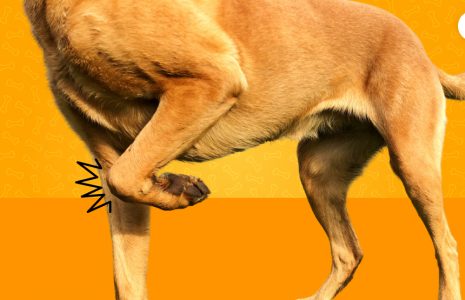


Leave A Comment